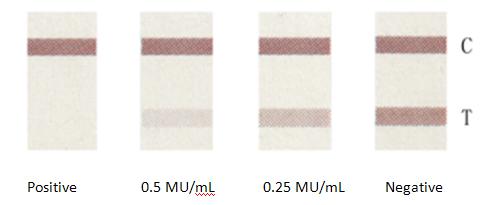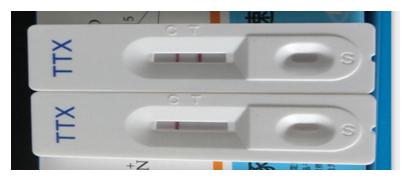Tetrodotoxin, frequently abbreviated as TTX, is a potent neurotoxin. Its name derives from Tetraodontiformes, an order that includes pufferfish, porcupinefish, ocean sunfish or mola, and triggerfish, several species that carry the toxin. Although tetrodotoxin was discovered in these fish and found in several other animals (e.g., blue-ringed octopus, rough-skinned newt, and Naticidae) it is actually produced by certain symbiotic bacteria, such as Pseudoalteromonas tetraodonis, certain species of Pseudomonas and Vibrio, as well as some others that reside within these animals.
The Material Safety Data Sheet for TTX lists the oral median lethal dose (LD50) for mice as 334 μg per kg. Assuming the lethal dose for humans is similar, 25 milligrams (0.000881 oz) of tetrodotoxin would be expected to kill half of the group of 75 kg (165 lb) people that ingested it. The amount needed to reach a lethal dose by injection is much smaller, 8 μg per kg, or a little over one-half milligram (0.00002 oz) to kill a 75 kg (165 lb) person.
Ecalbio develop Tetrodotoxin (TTX) Rapid Test Kit, is a sandwich lateral flow immunochromatographic assay for the qualitative detection of Tetrodotoxin (TTX) in the sample within 10 min, the lowest detect limit can be up to 0.5 MU (0.10 µg )/mL for sample extraction solution, 10 MU (2.0 µg )/mL for sample.
Tetrodotoxin (TTX) rapid test kit is based on sandwich lateral flow immunochromatographic assay. The test device has a testing window. The testing window has an invisible T (test) zone and C (control) zone. When sample is applied into the sample hole on the device, the liquid will laterally flow on the surface of the test strip. If there is little Tetrodotoxin (TTX) in the sample, a visible T band will appear; T band is invisible if it has more Tetrodotoxin (TTX) in the sample. The C band should always appear after a sample is applied, indicating a valid result. By this means, the device can accurately indicate the presence of Tetrodotoxin (TTX) in the sample.
Determine the result:

Invalid: No colored band appears in C zone, no matter whether T band appears.


